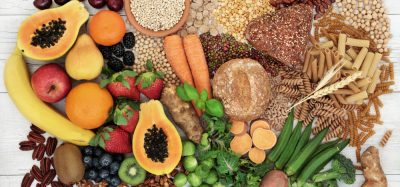Inulin-propionate ester reduces cravings for high-calorie foods
- Like
- Digg
- Del
- Tumblr
- VKontakte
- Buffer
- Love This
- Odnoklassniki
- Meneame
- Blogger
- Amazon
- Yahoo Mail
- Gmail
- AOL
- Newsvine
- HackerNews
- Evernote
- MySpace
- Mail.ru
- Viadeo
- Line
- Comments
- Yummly
- SMS
- Viber
- Telegram
- Subscribe
- Skype
- Facebook Messenger
- Kakao
- LiveJournal
- Yammer
- Edgar
- Fintel
- Mix
- Instapaper
- Copy Link
Posted: 1 July 2016 | Victoria White, Digital Content Producer | 3 comments
Scientists have found that eating a type of powdered food supplement, called inulin-propionate ester, reduces cravings for high-calorie foods…


Scientists have found that eating a type of powdered food supplement, based on a molecule produced by bacteria in the gut, reduces cravings for high-calorie foods.


Scientists from Imperial College London and the University of Glasgow asked 20 volunteers to consume a milkshake that either contained an ingredient called inulin-propionate ester, or a type of fibre called inulin.
Previous studies have shown bacteria in the gut release a compound called propionate when they digest the fibre inulin, which can signal to the brain to reduce appetite. However the inulin-propionate ester supplement releases much more propionate in the intestines than inulin alone.
After drinking the milkshakes, the participants in the current study underwent an MRI scan, where they were shown pictures of various low or high calorie foods such as salad, fish and vegetables or chocolate, cake and pizza.
The team found that when volunteers drank the milkshake containing inulin-propionate ester, they had less activity in areas of their brain linked to reward – but only when looking at the high calorie foods. These areas, called the caudate and the nucleus accumbens, found in the centre of the brain, have previously been linked to food cravings and the motivation to want a food.
The volunteers also had to rate how appealing they found the foods. The results showed when they drank the milkshake with the inulin-propionate ester supplement they rated the high calorie foods as less appealing.
Participants ate 10% less pasta
In a second part of the study, the volunteers were given a bowl of pasta with tomato sauce, and asked to eat as much as they like. When participants drank the inulin-propionate ester, they ate 10% less pasta than when they drank the milkshake that contained inulin alone.
In a previous research study by the same team, published in 2013, they found that overweight volunteers who added the inulin-propionate ester supplement to their food every day, gained less weight over six months compared to volunteers who added only inulin to their meals.
Professor Gary Frost, from the Department of Medicine at Imperial, said: “Our previous findings showed that people who ate this ingredient gained less weight – but we did not know why. This study is filling in a missing bit of the jigsaw – and shows that this supplement can decrease activity in brain areas associated with food reward at the same time as reducing the amount of food they eat.”
He added that eating enough fibre to naturally produce similar amounts of propionate would be difficult: “The amount of inulin-propionate ester used in this study was 10g – which previous studies show increases propionate production by 2.5 times. To get the same increase from fibre alone, we would need to eat around 60g a day. At the moment, the UK average is 15g.”
You can find out more about the research in this video:









The study was done using a novel supplement developed for the study, so it is probably not available to the public. Here are the details and the website.
Abstract
Objective The colonic microbiota ferment dietary fibres, producing short chain fatty acids. Recent evidence suggests that the short chain fatty acid propionate may play an important role in appetite regulation. We hypothesised that colonic delivery of propionate would increase peptide YY (PYY) and glucagon like peptide-1 (GLP-1) secretion in humans, and reduce energy intake and weight gain in overweight adults.
Design To investigate whether propionate promotes PYY and GLP-1 secretion, a primary cultured human colonic cell model was developed. To deliver propionate specifically to the colon, we developed a novel inulin-propionate ester. An acute randomised, controlled cross-over study was used to assess the effects of this inulin-propionate ester on energy intake and plasma PYY and GLP-1 concentrations. The long-term effects of inulin-propionate ester on weight gain were subsequently assessed in a randomised, controlled 24-week study involving 60 overweight adults.
Results Propionate significantly stimulated the release of PYY and GLP-1 from human colonic cells. Acute ingestion of 10 g inulin-propionate ester significantly increased postprandial plasma PYY and GLP-1 and reduced energy intake. Over 24 weeks, 10 g/day inulin-propionate ester supplementation significantly reduced weight gain, intra-abdominal adipose tissue distribution, intrahepatocellular lipid content and prevented the deterioration in insulin sensitivity observed in the inulin-control group.
Conclusions These data demonstrate for the first time that increasing colonic propionate prevents weight gain in overweight adult humans.
Trial registration number NCT00750438.
http://gut.bmj.com/content/early/2014/11/17/gutjnl-2014-307913.full
Where can this supplement be purchased? I can not find it anywhere.
You could try contacting the authors of the study, their contact details can be found via this link: http://ajcn.nutrition.org/content/early/2016/05/11/ajcn.115.126706.short?rss=1